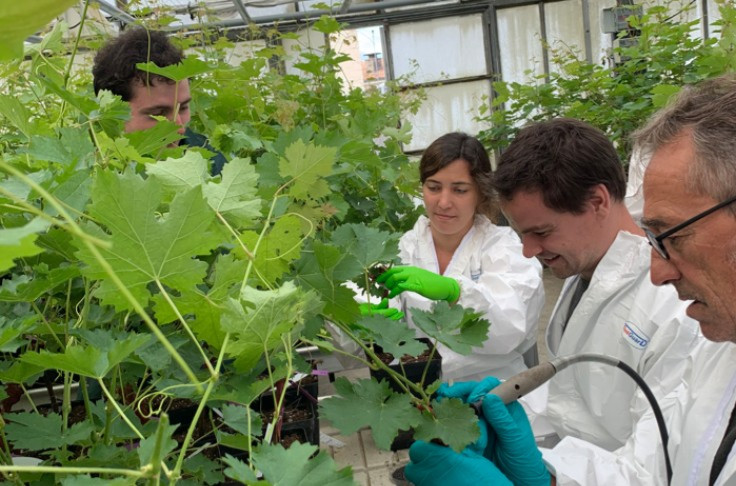A micro-organism found to prevent vine die-back diseases

We are currently assessing a very promising bio-pesticide against vine die-back diseases”, explains Marie-CĂ©cile Dufour of the French National Research Institute for Agriculture, Food and the Environment (INRAE). As part of the BIOBESTicide project, led by the private French company Greencell, which produces the oomycete, in conjunction with the French Vine & Wine Institute (IFV), Mercier Nurseries and seven other European partners, Dufour hopes to provide the wine industry with an efficient and cost-effective bio-pesticide against vine die-back diseases.
The micro-organism, identified and isolated in the soil of Bordeaux vineyards as part of PhD research, acts in a complex way, mostly preventatively by stimulating the plant's natural defences. Through the project, Greencell aims to increase its production capacity by using sustainable biomass such as beet pulp and sugar molasses. Italian company Lamberti is tasked with formulating the product to optimise its effectiveness in vineyards.
“In greenhouse trials, the oomycete applied to the soil reduced the size of cankers and necroses in the wood produced during the die-back process by 40-60%. We even reached 80% this year with the latest formula tested”, says Dufour. The project is due to finish at the end of 2023, after 42 months. An application for approval of the active substance and another for approval at European level will be submitted. Marketing authorisation (MA) for the active substance is unlikely to be granted immediately, however, because while the effectiveness of the oomycete is easy to demonstrate in greenhouse conditions, it will take longer to prove in vineyards, as die-back diseases are progressive and take on different forms depending on the vintage, making it more difficult to obtain results.






